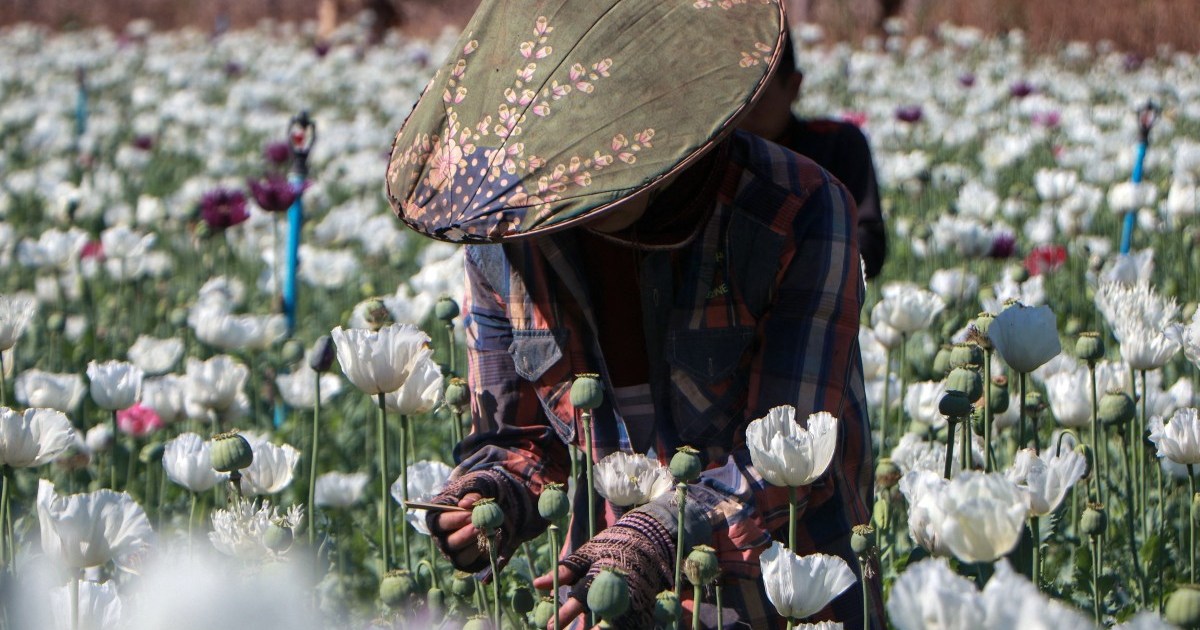
In a remote corner of Myanmar, a line of farmers moves through a field of nodding poppies, making small cuts in the greenish-purple pods to release opium resin.
The next morning they will collect the residue that has seeped out overnight and parcel it into bundles of sticky opium – the building blocks for manufacturing heroin.
Myanmar became the world’s biggest opium producer in 2023, according to the United Nations, overtaking Afghanistan after the Taliban government launched a crackdown on the crop.
Since the military in Myanmar seized power in 2021, causing social and economic turmoil and armed conflict across the country, the cash crop has become more important to some farmers struggling to get by.
“I planted poppies in recent years, but only a few,” said Aung Moe Oo, speaking from the vast field enclosed by hills on the border of Shan and Karen states.
“This year, I planted three acres.”
He expects those three acres (1.2 hectares) to yield about 16 kilogrammes (35 pounds) of poppy resin this harvest, which he hopes to sell for about $4,500.
“Growing poppies is the best way to make a living for our family,” he said, sporting a brown bucket hat and a striped grey shirt.
Aye Aye Thein, another farmer from the region, used to grow rice, corn, beans and avocado.
But when the fighting between the military and armed groups came to her home, she was forced to leave her fields.
Conflict since the coup, which ended a rare experiment with democracy in Myanmar, has displaced almost two million people, according to the UN.
Even before Aye Aye Thein had to leave her home, the plunging value of the local kyat currency had made buying agricultural products such as fertiliser much more expensive.
“After the political situation changed and there is fighting, we can’t grow anything in our own fields,” she said.
Aung Moe Oo agreed.
“If we send our crops to the brokers’ centre, there are lots of costs that we can’t afford,” he said. “So, we grow poppy flowers instead of corn this year.”
The raging conflict is disrupting transport and stunting the export of agricultural goods like rice and corn, the World Bank said late last year.
Meanwhile, poppy cultivation is becoming more sophisticated, the UN says, with increased investment and improved irrigation pushing up crop yields.
Myanmar produced an estimated 1,080 metric tonnes of opium last year, the world body’s office on drugs and crime said, up from an estimated 790 metric tonnes the previous year.
The opium is refined into heroin in factories hidden in the jungles and ravines of Shan state and then smuggled through neighbouring countries such as Thailand and on to the world market.
Read More: World News | Entertainment News | Celeb News
Aljazera










